Blog Article
Ciao, Meridian 2022!
Author
Caroline Young
Publishing date
Meridian
Recap
Wow. I know I’m not alone thinking back on what an exhilarating whirlwind last week was.
Last week, members of SDF and the Stellar ecosystem convened for our fourth annual conference and biggest event of the year. And this time, we wouldn’t be staring at each other through computer screens, but seeing each other in-person (some, for the first time in years) in Italy.
The theme for Meridian 2022 was the “Urgency of Doing,” inspired by a quote from Leonardo da Vinci. His wisdom proved to be prescient as we all gathered in the city of Rome, considering a future fraught with problems that need to be solved sooner than later. Perhaps it was the energy of finally seeing everyone all gathered under one roof or it was the stimulating conversations happening on stage, in private meeting rooms, or by the espresso bar, but one thing seemed clear – people left Meridian 2022 motivated to take action.
Now, let’s recap what happened, shall we? (Briefly though, because there was a LOT.)
The new age of the founder
Denelle Dixon (CEO and Executive Director, SDF) took the main stage with this year’s keynote speaker Alexis Ohanian (Founder of Seven Seven Six).
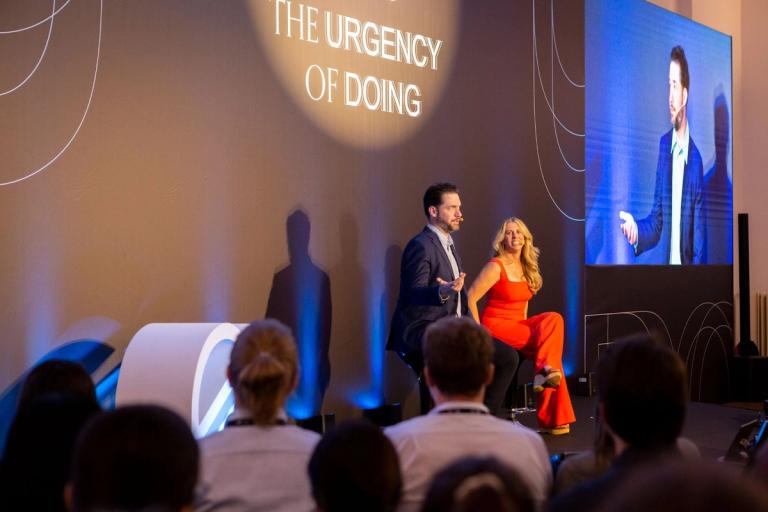
Alexis discussed how he came to be a founder in the first place (involving a spur-of-the-moment decision to skip his LSAT exam) and the difference between him being a founder then versus now. The importance of building a vibrant culture alongside building a company cannot be understated, he said. What he initially thought were unimportant or pointless are now absolutely required to achieve big objectives and scale appropriately.
“Being a CEO is a terrible, terrible burden,” he jokes (but not really). He continues, “For any founder, you have to be a little broken to go down this path. For any leader – you have to have some part that needs to be willing to break. Everything that we enjoy in this world, it’s because someone was willing to be broken to go create this thing.”
Denelle and Alexis also discuss how, in web3, founders and leaders need a certain quality beyond just business acumen and being able to ship a good idea – they need to be community leaders as well, with their passion serving as the connective tissue between businesses and founders and users and the product.
Responding to crisis with urgency
Nearing the end of 2022, we can look back and say: this year has not been kind to the world. Amidst what feels like the many problems of the world coming to a head, Carmen Hett (Corporate Treasurer of the UN Refugee Agency), reminds us that there is always action we can take – especially to help those who are most vulnerable.
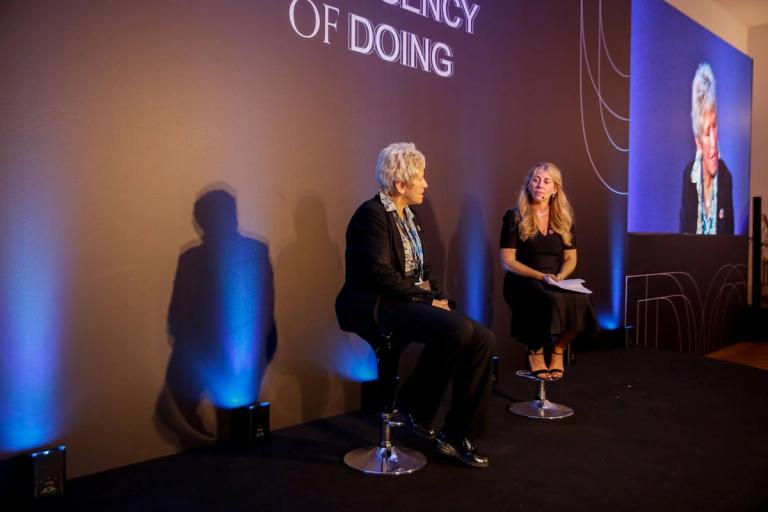
“I think blockchain is ready for the UN,” she says, highlighting how blockchain can improve the delivery of humanitarian aid. Blockchain can provide safe, secure, fast payments with portability, closing the last mile with digital cash and enabling people to transact in markets wherever they are.
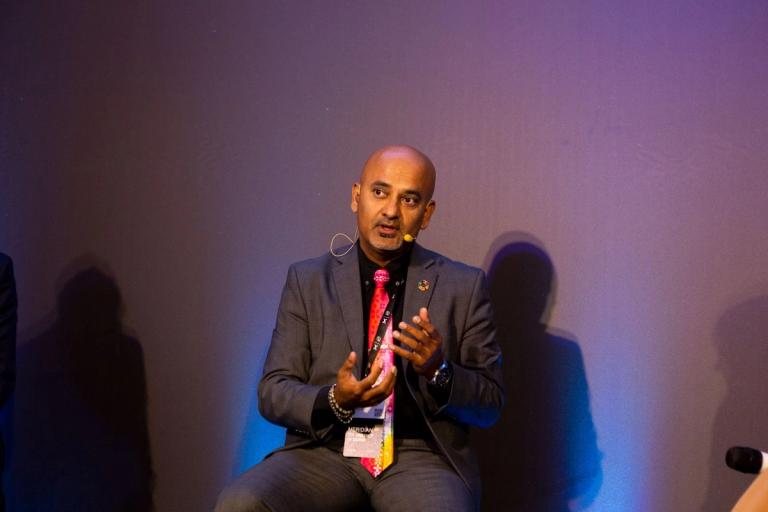
Building upon on the theme of Carmen’s session, Shashank Rai (CTO, UN International Computing Centre), Jorge Fernandes (Head of Innovative Finance, UN World Food Programme), and Emily Barnes (Senior Advisor for Cash and Emergencies, International Rescue Committee) discuss how they think blockchain and other emerging technologies can revolutionize the process of disbursing aid faster, more transparently, and safely – at both an innovation, implementation, and fieldwork level.
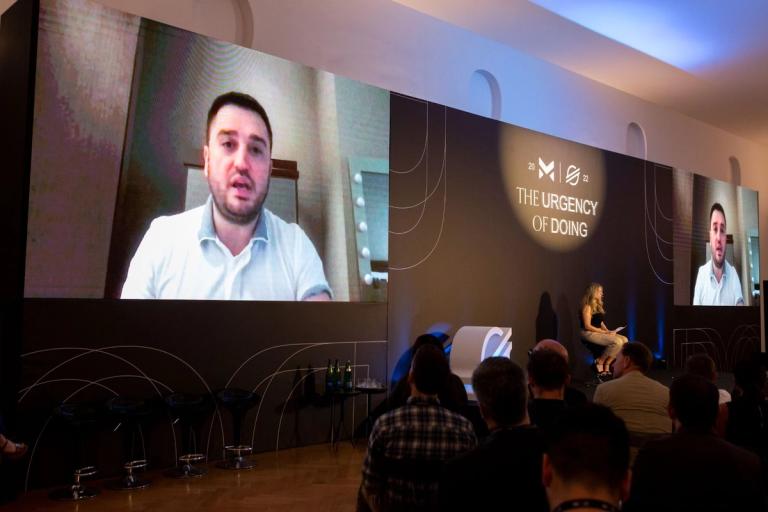
Joining Meridian 2022 virtually was Alex Bornyakov (Deputy Minister of Digital Transformation of Ukraine), who discussed how the country has maintained its status as a technologically progressive hub of talent in Europe, and how Ukraine plans to leverage crypto to push forward on digital transformation.
The saga of Soroban continues
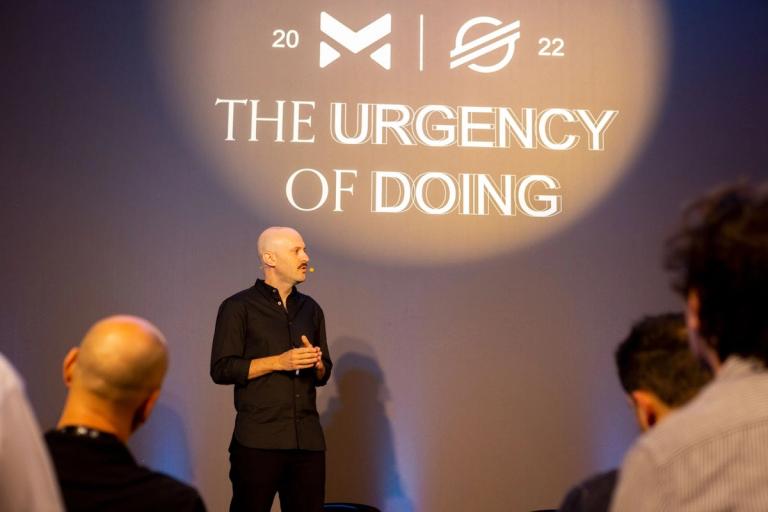
Tomer Weller (VP of Tech Strategy, SDF), took the main stage on Day 2 to talk about Soroban, a new smart contracts standard being built by SDF. In addition to explaining the rationale behind how Soroban is being built, Tomer announced that Soroban is now live on futurenet, an incentivized testing environment for first-wave developers.
To encourage building on Soroban, SDF has also announced a $100M adoption fund, with the first incentive program, Sorobonathon: First Light, rewarding eligible devs for testing Soroban and sharing their feedback through content including code examples, tutorials, and Github issues.
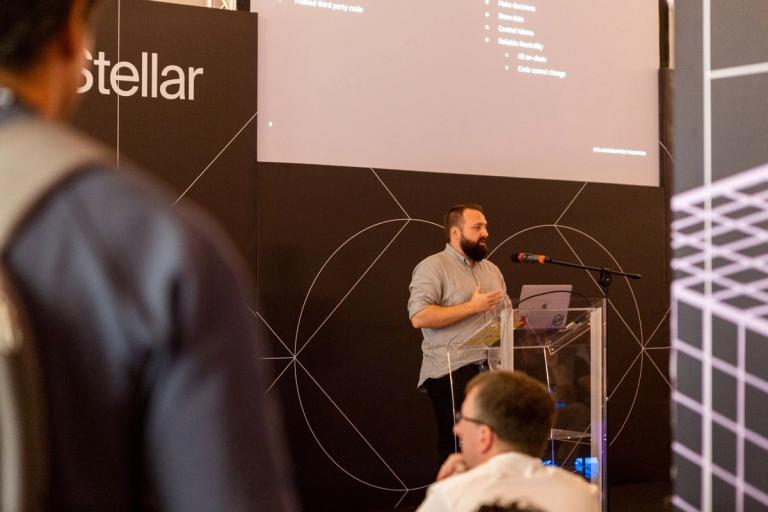
The Soroban train continued with a workshop led by Paul Bellamy (Software Engineer, SDF), who demo-ed the new technology in front of a live audience. Not only did Paul show everyone how to set up an environment and run through the tools, but he also walked the audience through writing a smart contract – and proceeded to deploy the first Soroban smart contract ever!
It’s (dev)heaven over here
Soroban might have taken Main Stage on Day 2, but the Developers Stage featured an an all-star lineup of speakers on a variety of topics, including:
Introducing the Stellar Anchor Platform
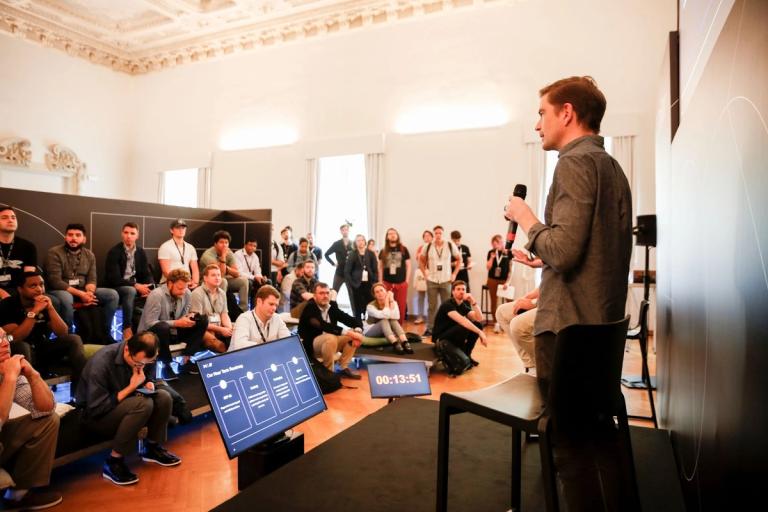
Stellar's network of global on/off-ramps, or anchors, sets it apart from others, and SDF is making it easier than ever for businesses to become anchors. Nick Gilbert (Head of Product, SDF) and Jake Urban (Partner Engineering Tech Lead, SDF) discuss the Stellar Anchor Platform, a new, open-source, and easy-to-deploy solution that simplifies the process, and provide a technical walkthrough of this latest product.
Future of Community Funding: Turning SCF into a DAO
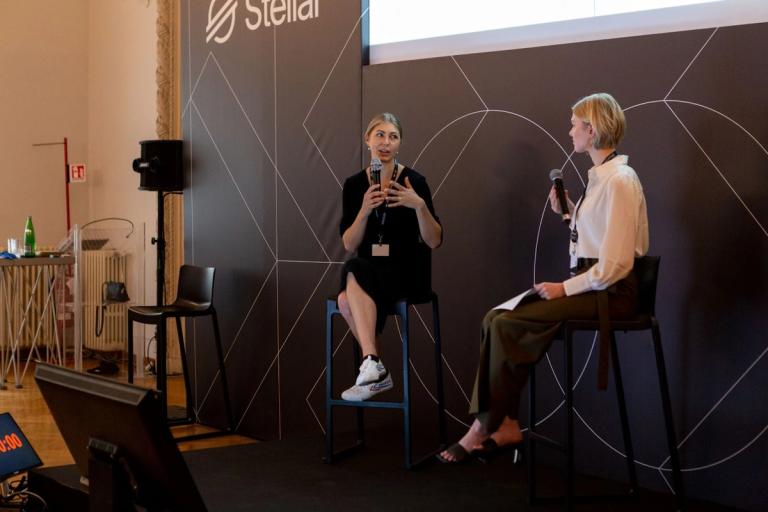
Since 2016, the Stellar Community Fund (SCF) and its predecessor have supported nearly 400 developers and businesses building on Stellar with almost $200M worth of XLM in funding. The fund has been iterated on many times based on community feedback, from improving submission guidelines to community voting to decentralizing decision making.
With the approach of native smart contract functionality on Stellar, Anke Liu (SCF Program Manager, SDF) and Kelsie Nabben (Researcher, RMIT University/BlockScience) consider a once far-fetched interest becomes an attainable possibility to scale community participation: turning SCF into a DAO.
Agreement is Its Own Incentive
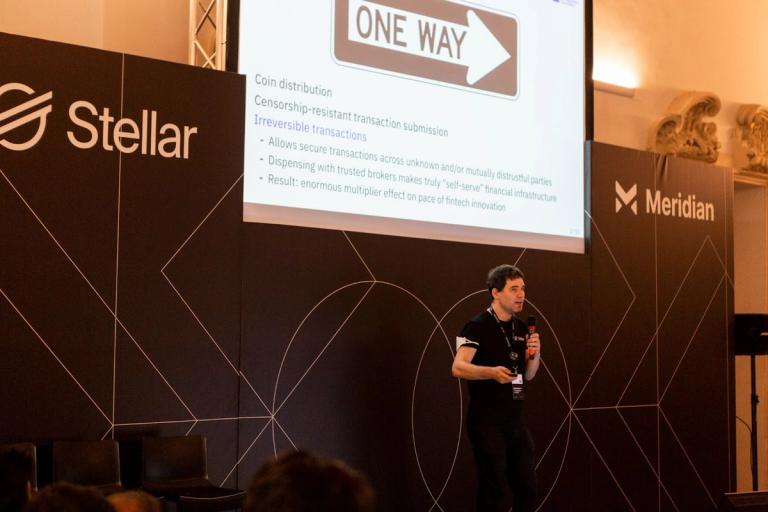
We know that not all forms of decentralization are environmentally sustainable, but are they economically sustainable? When incentives are in play, does that help or hinder security? David Mazières (Co-founder and Chief Scientist, SDF) explains how token-based incentives can hinder the growth of decentralized finance. As more established financial actors enter the scene, David argues, the most sustainable consensus mechanism will be the one that directly leverages the value of agreement.
Regulation is front-and-center of blockchain
Given how chaotic this past year has been for the blockchain industry, it’s no surprise that regulation is on everyone’s minds these days. For some, it’s the bogeyman; for others, it’s the key to fully realizing the potential of this technology.
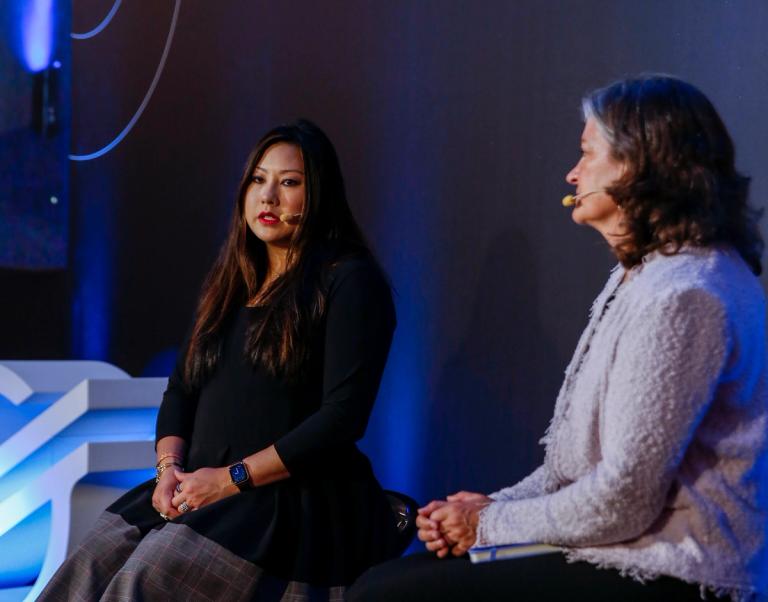
Candace Kelly (General Counsel, SDF) brought Caroline Pham (Commissioner, U.S. Commodity Futures Trading Commission) on-stage to discuss the necessity of regulation in order to protect consumers, but in a way that does not hinder innovation.
“Regulators should take a common-sense approach,” Caroline said. But the hook isn’t solely on the regulators per se. “Proactive engagement with regulators is important to minimize risk and increase opportunities.”
The Stellar ecosystem is well and thriving
The Stellar network wouldn’t be where it is without the Stellar ecosystem, and members flew into Rome from all over the world to connect with one another. Intellectual cross-pollination was in the air as they joined each other to share ideas with a very eager audience:
The Spotlight Is On Stablecoins: Building Utility And Trust Under Scrutiny
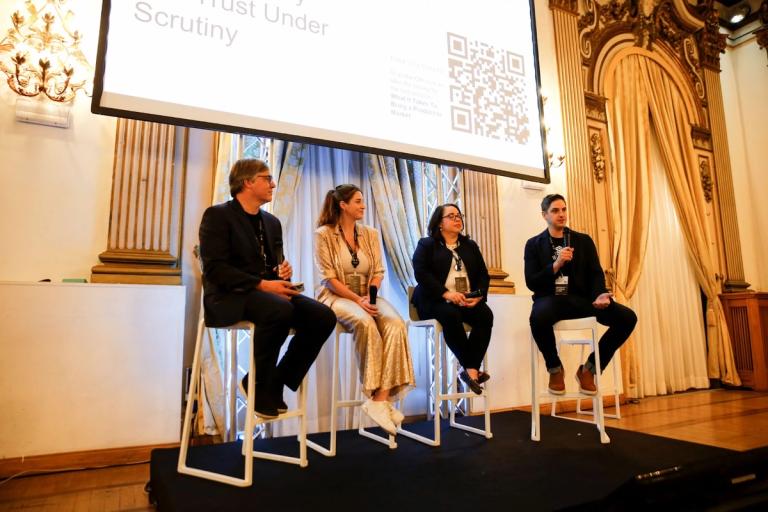
A while back, Candace wrote an enlightening blog post on stablecoins and why they need standards. At Meridian ‘22, Michaela Juric (Head of Blockchain, Novatti), Teana Baker-Taylor (VP, Policy & Regulatory Strategy, UK/EU, Circle), and Alex McDougall (CEO, Stablecorp) discuss the importance of their companies’ roles as stablecoin issuers on the Stellar network (current and future) and how they're driving utility and building trust with the public and policymakers.
Anchors: Stellar's Secret Sauce
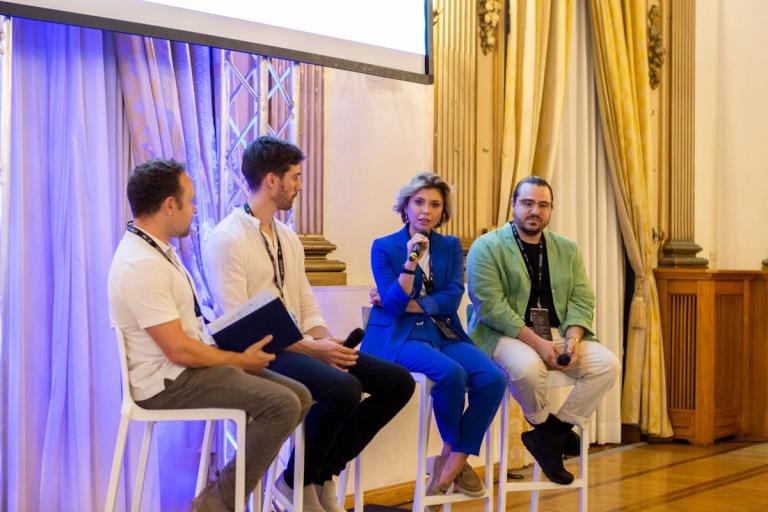
Stellar enables equitable access to the world’s financial system, and this is made possible by an incredible network of anchors—entities that connect Stellar rails to traditional banking infrastructure. What does it take to provide reliable crypto/fiat connectivity? What kinds of business models can leverage the infrastructure anchors have built?
Yanni Giannaros (CEO, Wyre), Alla Zhedik (CEO, Tempo France), and Jack Saracco (Business Development Director, Settle Network) all share their latest and greatest insights for what it takes to make a great anchor on Stellar.
Enabling the Future of Work
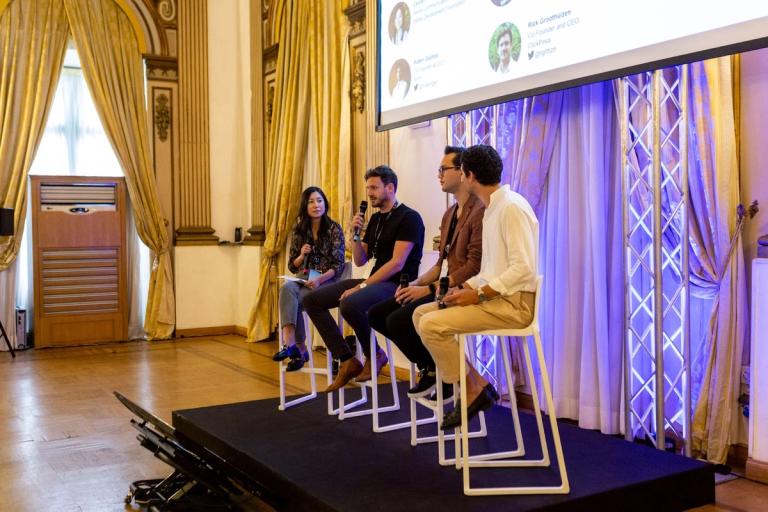
The future of work is changing, whether it's finding the right person for the job (who may be based on the other side of the globe) or more flexible solutions for digital entrepreneurs to get paid and protect their earnings from devaluation. Carolyn Yi (Senior Communications Manager, SDF) moderated a panel with Ruben Galindo (CEO, Airtm), Jonathan Chester (CEO, Bitwage), and Rick Groothuizen (Co-founder and CEO of ClickPesa) to explore how blockchain-powered solutions are shaping how we earn, hold, and spend our money.
And of course the fun and festivities…
It wouldn’t be a proper Meridian without a chance to let loose and relax! From a cocktail hour complete with its own string quartet to an evening gala in a gorgeous palazzo to all the braindates and community fun, it was a veritable Roman feast of activities to partake in – scroll down below for a little snapshot of what we were up to!
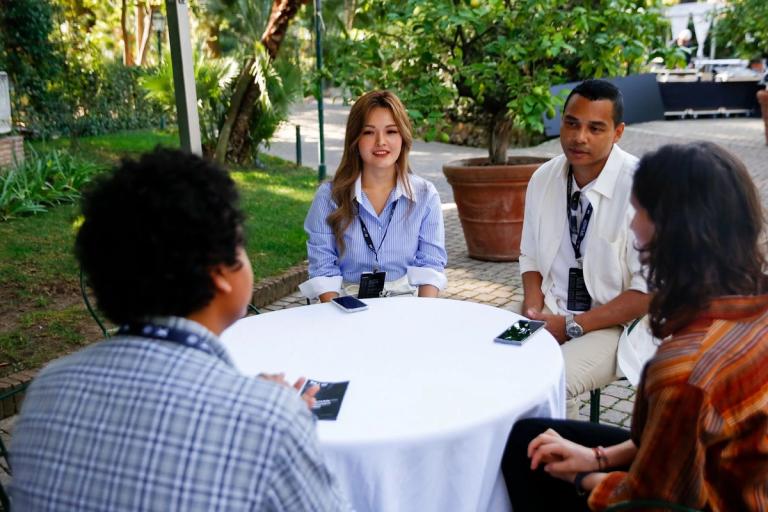
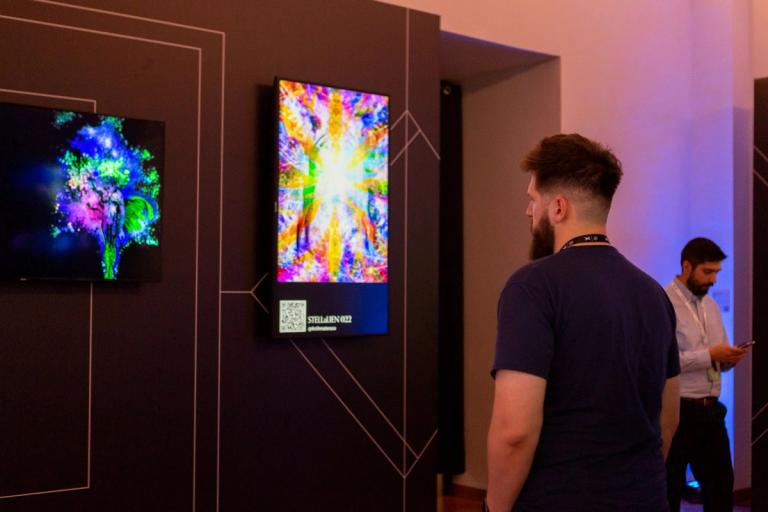
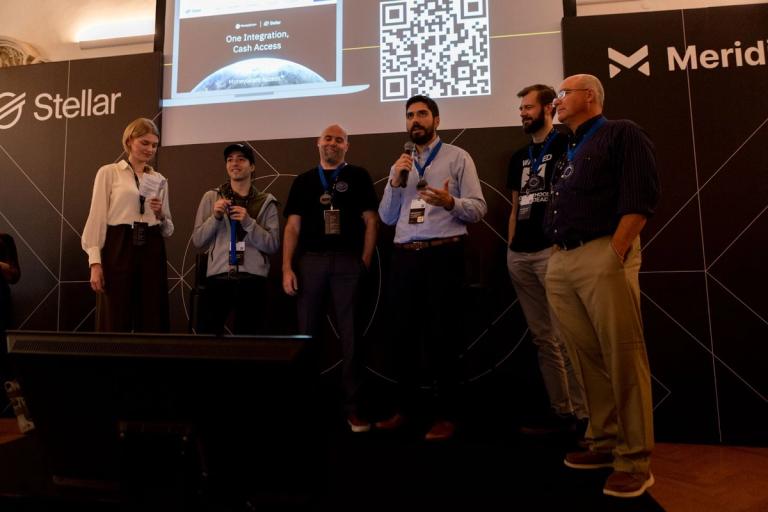
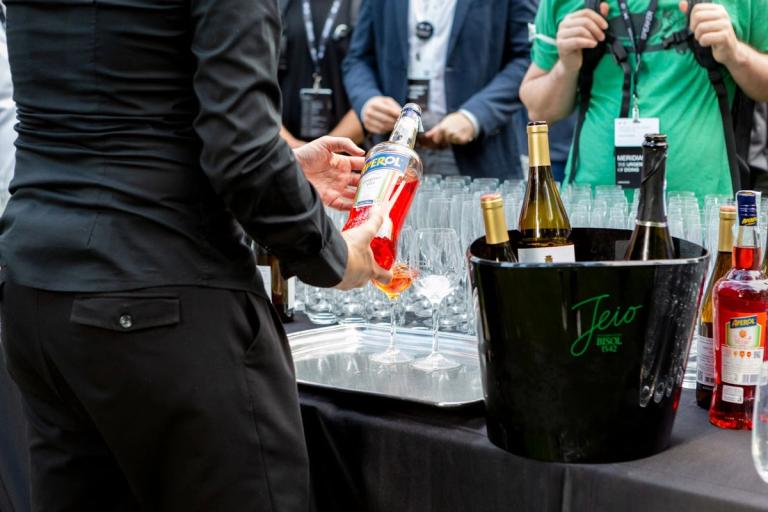

Finito!
And that's a wrap! Farewell, Meridian 2022 – we can't wait to see where you'll take the Stellar ecosystem and community next year! Stay tuned for the session recordings on meridian.xn--stllar-j4a.org.